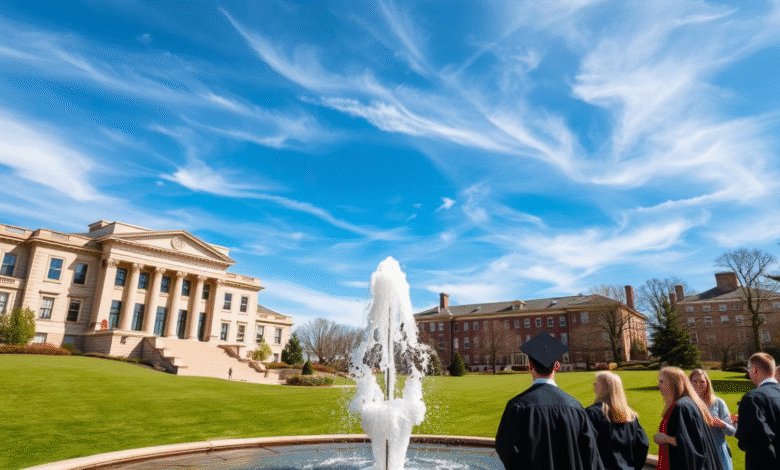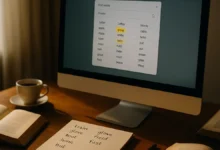University of Metaphysical Sciences Lawsuit Updates: Latest News, Case Details, and Student Impact

Stay informed with the latest University of Metaphysical Sciences lawsuit updates. Explore case details, legal implications, and what it means for students and faculty.
The University of Metaphysical Sciences lawsuit updates have been attracting significant attention in both academic and alternative education circles. As institutions that specialize in metaphysical studies continue to grow in popularity, legal challenges have become an unavoidable part of their evolution. For many, the phrase “University of Metaphysical Sciences lawsuit updates” may seem like just another headline, but for students, faculty, and supporters of holistic education, it represents a pivotal moment of change.
Lawsuits often bring mixed emotions. On one hand, they can create doubt, concern, and speculation. On the other, they open the door for transparency, reform, and a deeper examination of policies. In the case of the University of Metaphysical Sciences, the lawsuit updates highlight not only legal disputes but also raise broader questions about the legitimacy and recognition of metaphysical education in modern society.
Background of the University of Metaphysical Sciences
The University of Metaphysical Sciences (UMS) has built its reputation as a unique educational institution offering degrees and certifications in metaphysics, spirituality, and consciousness studies. Unlike traditional universities, UMS has catered to students seeking spiritual growth alongside academic learning. For years, it has attracted learners interested in meditation, alternative healing, and deeper metaphysical sciences.
However, the rise of such institutions has not been without challenges. Regulatory agencies, accreditation bodies, and even critics from the academic mainstream have questioned the framework under which these schools operate. The recent lawsuit updates surrounding UMS bring many of these concerns to the forefront, placing the university under a legal spotlight that extends far beyond its campus.
Why the Lawsuit Matters
The importance of the University of Metaphysical Sciences lawsuit updates cannot be overstated. For current students, the lawsuit may directly impact their academic journey, degree recognition, or even their career path in metaphysical fields. For alumni, it could raise questions about the validity of their education and the perception of their credentials in professional settings.
From a broader perspective, this lawsuit represents more than just a dispute involving one university. It has become a symbol of how alternative education is received and regulated within the larger educational system. If the University of Metaphysical Sciences can navigate these legal challenges successfully, it may set a precedent for other institutions offering unconventional programs.
Key Issues Highlighted in the Lawsuit
When examining the University of Metaphysical Sciences lawsuit updates, several recurring themes emerge. First is the question of accreditation. Many alternative schools operate under different accrediting standards, which sometimes creates confusion for students about the transferability of credits or recognition of degrees. This has long been a point of contention and is central to the ongoing legal battles.
Another pressing issue involves consumer protection. Regulators often argue that schools must be transparent about what students can expect regarding job opportunities, professional recognition, and financial investment. The lawsuit against the University of Metaphysical Sciences reflects these concerns and seeks to ensure that students are not misled about the scope and value of their education.
The Legal Timeline of University of Metaphysical Sciences Lawsuit Updates
The timeline of the lawsuit paints a clearer picture of how things escalated. Early reports indicated concerns from oversight agencies regarding accreditation and program descriptions. As complaints mounted, legal proceedings were initiated, pulling the University of Metaphysical Sciences into the courtroom spotlight.
Since then, lawsuit updates have been steadily surfacing. Each development, whether it be a hearing, a settlement discussion, or a regulatory review, has shaped public perception. The ongoing updates not only inform stakeholders but also fuel online debates about the legitimacy of metaphysical sciences as a whole.
Student Perspective on the Lawsuit
For students, the University of Metaphysical Sciences lawsuit updates carry personal significance. Many enrolled in UMS because of its promise to blend spiritual growth with academic credibility. When news of lawsuits emerges, it can create feelings of uncertainty. Students worry about whether their degrees will remain respected, whether classes will continue uninterrupted, and how employers will perceive their credentials.
Yet, in interviews and forums, many students express continued loyalty to the institution. They argue that the teachings they’ve received go beyond a piece of paper and represent profound life transformations. For them, the lawsuit updates are just external noise in the face of their personal growth journey.
Faculty Response and Institutional Stance
Faculty at the University of Metaphysical Sciences have had to address growing concerns. Many professors have publicly voiced confidence in the institution’s integrity and commitment to its mission. They often emphasize that the lawsuit, while disruptive, does not diminish the value of metaphysical education.
The university itself has taken a stance of reassurance. Official statements highlight transparency, cooperation with authorities, and the intent to resolve matters swiftly. By releasing regular updates, the University of Metaphysical Sciences seeks to maintain trust with its students and stakeholders, reinforcing the idea that it is here to stay despite legal challenges.
Public Reaction and Media Coverage
The lawsuit has not gone unnoticed by the media. Coverage of the University of Metaphysical Sciences lawsuit updates has appeared in both mainstream outlets and specialized educational forums. Some portray the case as a cautionary tale about unaccredited education, while others view it as an unfair attack on alternative learning systems.
Public reaction mirrors this divide. Critics point to the lawsuit as evidence of why metaphysical sciences should not be taken seriously, while supporters argue it’s a battle for academic freedom. The clash of these perspectives only adds fuel to the ongoing debate about the role of non-traditional education in society.
Broader Implications for Metaphysical Education
The University of Metaphysical Sciences lawsuit updates go beyond one school. They highlight the growing tension between conventional education and alternative approaches. As more individuals seek meaning and purpose beyond traditional academics, metaphysical institutions are becoming more popular. This lawsuit tests how society, law, and academia will respond to such shifts.
If UMS emerges stronger, it could validate the importance of offering alternative programs that challenge mainstream norms. On the other hand, if the lawsuit results in significant restrictions, it may discourage other schools from pursuing similar paths, thus limiting opportunities for students who crave non-traditional education.
Table: Stakeholders Affected by the Lawsuit
| Stakeholder Group | Impact of Lawsuit Updates |
|---|---|
| Current Students | Concerns over degree recognition, course continuity |
| Alumni | Questions about career credibility and credentials |
| Faculty | Professional reputation and job security |
| Regulators | Ensuring compliance and protecting consumer interests |
| Public/Media | Shaping perception of metaphysical sciences |
Expert Opinions on the Lawsuit
Experts in both law and education have weighed in on the University of Metaphysical Sciences lawsuit updates. Legal professionals argue that transparency and accountability must be at the heart of any educational institution. They point out that while alternative schools serve a unique niche, they must still adhere to laws that protect students as consumers.
Meanwhile, educational experts highlight that the lawsuit reflects a larger trend in questioning what constitutes “valid” education. They suggest that metaphysical sciences, while unconventional, provide real value to many. The challenge lies in balancing freedom of education with legal oversight.
Quotes on the University of Metaphysical Sciences Lawsuit Updates
“Education, whether conventional or alternative, thrives best when transparency and accountability are prioritized.”
“The University of Metaphysical Sciences lawsuit updates remind us that the pursuit of knowledge often challenges societal norms, and that’s not necessarily a bad thing.”
FAQs on University of Metaphysical Sciences Lawsuit Updates
What is the University of Metaphysical Sciences lawsuit about?
The lawsuit primarily revolves around accreditation concerns, consumer protection issues, and questions about program transparency.
How do the lawsuit updates affect students currently enrolled?
While updates can create uncertainty, most programs continue as usual, and the university assures students their education remains valid.
Will alumni degrees be impacted by the lawsuit?
This depends on the lawsuit’s outcome, but typically, previously awarded degrees remain legally valid, even if institutional changes occur later.
Is the University of Metaphysical Sciences still operating during the lawsuit?
Yes, the institution continues to operate and provide courses, with leadership promising to cooperate with authorities while maintaining educational services.
What does this lawsuit mean for metaphysical education overall?
The lawsuit reflects growing tension between traditional and alternative education systems. Its outcome may influence how metaphysical institutions are perceived and regulated in the future.
Conclusion on the University of Metaphysical Sciences Lawsuit Updates
The University of Metaphysical Sciences lawsuit updates serve as a reminder that education, no matter how unconventional, exists within a broader legal and societal framework. For students, faculty, and the metaphysical community, these updates represent both challenges and opportunities. While lawsuits can cast shadows, they can also pave the way for greater transparency, recognition, and evolution. Ultimately, the story of UMS is still being written, and its outcome could shape the landscape of alternative education for years to come.





